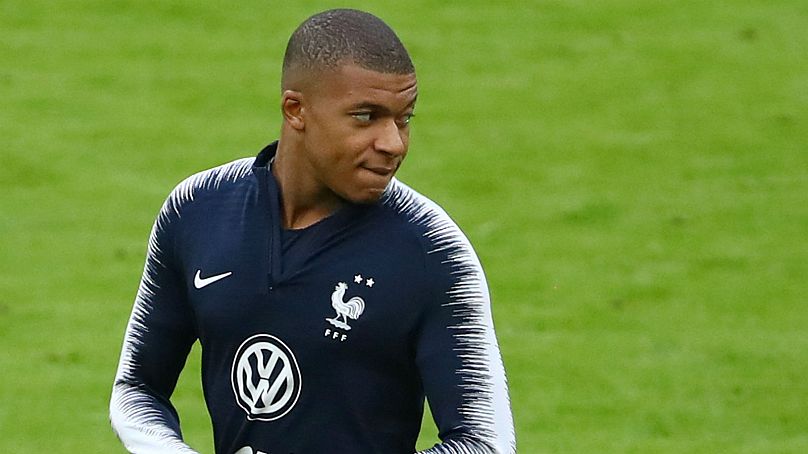Here we explain the new major football tournament that begins tonight with European heavyweights France and Germany facing off in Munich.
Europe’s new international football contest has kicked off ... and it’s complicated.
Here we explain why the Nations League was introduced, how it will work and its link to qualification for the continent’s next soccer showpiece: Euro 2020.
How does it work?
Europe’s football governing body, UEFA, has divided its 55 teams into four leagues, based on their records.
The top-ranked teams are in League A and the lowest in League D.
Each league has then been subdivided into groups of three of four teams. For example, France, Germany and the Netherlands will play each other in Group A1, while Belgium, Iceland and Switzerland will contest Group A2.
Group fixtures will take place September to November this year, with teams playing each other home and away.
How is each league and sub-group divided?
League A
Group A1: Germany, France and Netherlands.
Group A2: Belgium, Switzerland and Iceland.
Group A3: Portugal, Italy and Poland.
Group A4: Spain, England and Croatia.
League B
Group B1: Slovakia, Ukraine and the Czech Republic.
Group B2: Russia, Sweden and Turkey.
Group B3: Austria, Bosnia & Herzegovina and Northern Ireland.
Group B4: Wales, Republic of Ireland and Denmark.
League C
Group C1: Scotland, Albania and Israel.
Group C2: Hungary, Greece, Finland and Estonia.
Group C3: Slovenia, Norway, Bulgaria and Cyprus.
Group C4: Romania, Serbia, Montenegro and Lithuania.
League D
Group D1: Georgia, Latvia, Kazakhstan and Andorra.
Group D2: Belarus, Luxembourg, Moldova and San Marino.
Group D3: Azerbaijan, Faroe Islands, Malta and Kosovo.
Group D4: FYR Macedonia, Armenia, Liechtenstein and Gibraltar.
What are teams competing for?
The winners of the four groups in League A will qualify for Nations League Finals that will be played between June 5-9, 2019.
They will compete in semi-finals with the winners going head-to-head to be crowned the inaugural champions.
What do teams in the other leagues have to play for?
The winners of each group gain promotion up a level for the next edition of the Nations League, which begins in 2020 and has its final the following summer. The tournament’s climax is timed to coincide with the summers when there is neither a football world cup or a European championship. Basically, odd years.
Does the Nations League replace qualifying for Euro 2020?
No, but they are linked.
Qualifying for Euro 2020 — the championship played every four years — begins in March 2019 and is separate from the Nations League.
Teams play in groups entirely disconnected to the Nations League, with the winners and runners-up qualifying for the tournament.
But if a country doesn’t qualify in this traditional way, the Nations League will provide a second chance.
All of the 16 group winners from the Nations League will go forward to play-off for the remaining four spots at Euro 2020.
But if — and this is where it gets even more complicated — a group winner has already qualified for Euro 2020 via the traditional route, its play-off place goes to the next best-placed team below them in the Nations League.
For example, Sweden fails to qualify for Euro 2020 via the traditional qualification route. It also finishes second in its Nations League group, meaning it does not qualify for a Euro 2020 play-off place. But it is handed a lifeline when Turkey, the winner of its Nations League group, qualifies for the finals via the traditional route. Its play-off place for coming top of the group B2 passes to Sweden, handing it a lifeline.
It essentially means you could lose all your Euro 2020 qualification games and still qualify for the tournament via the Nations League.
Why has this been done?
UEFA says it has introduced the Nations League to improve the standing of national team football, in the face of intense competition from money-spinning domestic leagues, like the Premiership, and the Champions League, Europe’s club tournament for the creme de la creme of the continent’s teams.
There is also a belief that friendly matches between countries do not provide adequate competition and can be a distraction for the under-pressure star players.












